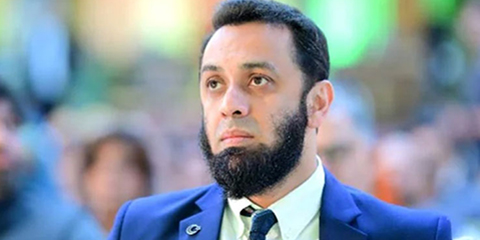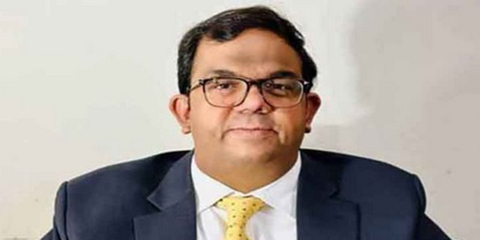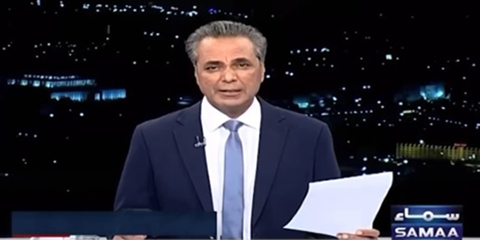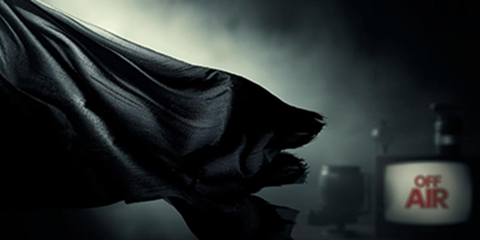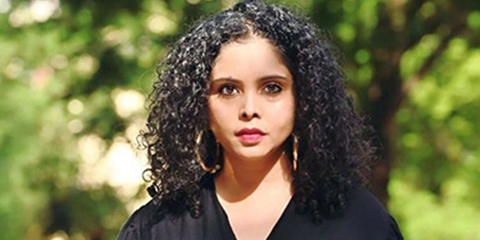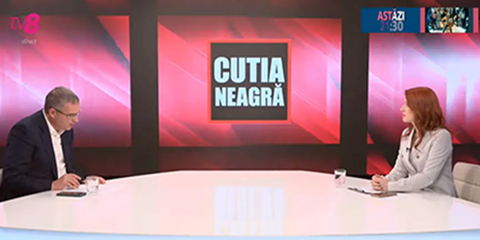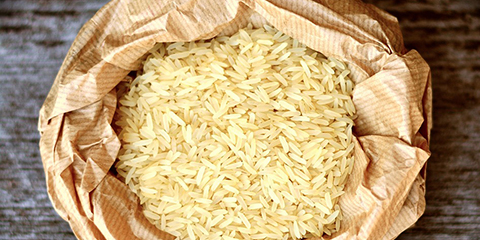In Turkey bombings, media bans 'arrive before ambulances'
JournalismPakistan.com |
Published 9 years ago
Join our WhatsApp channel
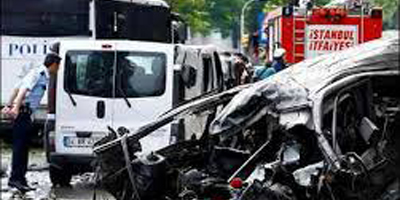
ISTANBUL - Well before police could establish who was responsible for a car bombing in Istanbul that killed 11 this week, the government in Turkey had banned the media from reporting anything about the investigation.
Bans have been implemented after such incidents since 2013 and have become so routine that some joke on Twitter that the ban arrives before the ambulance — but they're part of what free-speech advocates say is an increasingly concerning pattern of restricting news coverage in Turkey. Violating the ban leaves local news channels vulnerable to fines and possible prosecution.
The Committee to Protect Journalists describes Turkey as "the current master" of the media blackout practice.
Although other countries, especially in the Middle East, use such bans, what makes Turkey different is their extremely broad nature and the absence of clarity as to when they expire and what the consequences are for those who take the risk of violating them. They are usually issued by an official regulatory body but they have also come from courts or even the office of the prime minister.
"How these bans are defined, we don't know," says Kadri Gursel of the International Press Institute. "How these so-called violations of the bans are prosecuted, we don't know. So it is a very arbitrary situation. ... These are very vaguely defined bans but they have a chilling effect."
Critics say Turkey has witnessed a sharp decline in press freedoms since two polarizing elections that dominated headlines in 2015; the resurgence of conflict between Turkish security forces and Kurdish militants as a truce collapsed last summer; and a string of suicide attacks blamed on Islamic State militants.
President Recep Tayyip Erdogan advocates a broader legal definition of "terrorism" and "terrorist" to include journalists, as well as activists and legislators, who voice support for terror organizations. The European Union wants Turkey to narrow the definition out of concern that existing laws are used to crush dissent.
Turkish officials defend bans, saying that they are necessary to protect the investigation into the attacks, prevent fear and panic among the public and bar images from serving as "propaganda" for the terror groups. That is a point of view that has considerable support in the broader public.
A senior official told the AP the orders don't amount to "media bans," as news channels do cover the general aftermath of terror attacks, but aim to prevent Turkish media from publishing and broadcasting violent images that Western media outlets would not publish or broadcast "due to ethical standards."
News coverage in Turkey and the Middle East can indeed be more grisly and graphic than what is shared with audiences in the West.
The bans prohibit reports that name suspects and increase the flight risk of collaborators, he said. The official spoke on condition of anonymity in line with government regulations that prevent public officials from speaking to journalists without prior authorization. As well as restricting reporting of attacks, the bans have been used during a fatal mining disaster in 2014 and a probe into top brass corruption in 2013.
Gursel of the International Press Institute rejects the notion that the bans are in the interest of smoother investigations. The goal, he says, is to intimidate journalists and TV channels from covering stories that could hurt the reputation of the government or from carrying out investigative reporting.
"The aim is mainly to make the public know less, see less and read less about these incidents, of which the coverage is seen as detrimental to the government," he told the AP. "It is a reflex to protect and safeguard government interests. It is a kind of perception management."
Aykan Erdemir, a former Turkish legislator and currently a fellow at the U.S.-based Foundation for the Defense of Democracies, says it is true that local media outlets publish graphic images without any concern for the rights of the victim.
But these bans, he says, are primarily used as a form of censorship to silence critical media outlets and "to veil the government's incapacity in its struggle against terrorism." It is on a par with the firing of critical journalists and the government takeovers of opposition media that have become so commonplace in the country, he says.
Ozgur Ogret, the Turkey representative for the Committee to Protect Journalists, says the news bans violate the right to be informed. Although some citizens sidestep them through the internet or by accessing foreign satellite channels, "they are very effective in the medium of television which is the number one news source of this country," he told The Associated Press.
Suleyman Demirkan, a member of the Radio and Television Supreme Council, RTUK, says broadcasters that violate the ban are issued a warning for a first infringement. If violations continue, they are fined 1 percent of the revenue they declared to the regulatory body the month prior to when the infringement occurred.
The fine can be raised to 5 percent if a channel is deemed to be aiding a terror organization through its infringement, said Demirkan, who is one of two members appointed to the nine-member council by the main opposition party and is critical of the blackouts.
The bans are just one of a slew of measures that have made reporting difficult for journalists in Turkey. The president has launched some 2,000 lawsuits over "insults," multiple foreign journalists have been deported and local journalists are in jail for revealing "state secrets" in what press freedom advocates call a widening crackdown on dissent.
Access to the conflict zones of the southeast, where the security forces are battling Kurdish militants, is limited to state media. Local Kurdish journalists are routinely jailed. This week, three journalists were attacked by a mob as they tried to cover the aftermath of a suicide bomb attack on a police station in the town of Midyat.
Turkey ranks 151 out of 180 countries in the 2016 World Press Freedom index compiled by Reporters Without Borders. It fared better than most Middle East countries and China but was far behind in comparison with the countries of the European Union, a bloc it aspires to join.
Journalism is a dangerous profession across the world. There's now an arc of countries from Russia to southern Africa where the kind of journalism that would be praised in many societies may get you imprisoned or killed. In Turkey's neighbor Syria, journalists are routinely tortured, killed or disappeared.
News bans are only one weapon in the broad arsenal deployed to silence critical media across the region, and are not uncommon. Jordan this week issued a gag order on a shooting attack that killed five employees at an intelligence office in a refugee camp. In volatile regions of Pakistan, journalists risk jail if they publish statements issued by militant groups.
When militants in Gaza or Lebanon fire rockets at Israel, the military censor bans immediate reports of the precise locations of the exploding shells to prevent gunmen from using the information to deploy more accurate fire. Sometimes Israeli police issue temporary gag orders if they think it could jeopardize a case.
Although there are no known cases of Turkey media outlets being prosecuted for violations of the ban, Demirkan points to the case of opposition journalists Can Dundar and Erdem Gul who were convicted last month of revealing state secrets for their reports on alleged government arms shipments to Syrian jihadists.
"Unfortunately, in the long run, these practices are causing harm to the Turkish state which they claim to protect," Demirkan said. "They are bruising the state's respectability and trustworthiness." - AP
Don't Miss These
Why only Nukta, Mr. Minister? Media workers question government's selective support
November 06, 2025:
Information Minister Attaullah Tarar’s job offer to Nukta staff draws criticism as hundreds of journalists across Pakistan face layoffs, salary delays, and job insecurity.
Information Minister Tarar announces jobs for all 37 laid-off Nukta employees
November 06, 2025:
Information Minister Attaullah Tarar announces jobs for 37 laid-off Nukta employees, saying they will be placed at digital platforms within 48 hours amid growing media uncertainty.
Faisal Chaudhry’s viral one-liner on G for Gharidah steals the show
November 05, 2025:
PTI’s Faisal Chaudhry’s witty reply to Gharidah Farooqi on GTV’s “G for Gharidah” goes viral as a clip from their debate over the 27th Amendment sparks reactions online.
A digital dream falters: Nukta cuts 37 jobs in Pakistan after only one year
November 05, 2025:
Digital platform Nukta lays off 37 employees in Pakistan, including journalists and producers, highlighting the financial struggles facing new media ventures in a shrinking job market.
Talat Hussain says offensive viral clip was edited out, not aired on Samaa TV
November 04, 2025:
Talat Hussain denies airing the viral clip showing Sher Afzal Marwat’s vulgar remark, saying it was not part of his Samaa TV show.
PFUJ recalls November 3, 2007 emergency as Pakistan’s darkest day
November 03, 2025:
PFUJ recalls November 3, 2007, as Pakistan’s darkest day under Musharraf, urging protection for journalists and the abolition of laws threatening press freedom.
PFUJ calls for end to Impunity for Crimes Against Journalists
November 02, 2025:
PFUJ urges Pakistan’s federal and provincial governments to end Impunity for Crimes Against Journalists and ensure their safety and press freedom.
Global impunity for journalist murders worsens as Pakistan sees 60 percent rise in attacks
November 02, 2025:
Impunity for crimes against journalists deepens worldwide as Pakistan reports a 60 percent surge in attacks and weak enforcement of safety laws.





